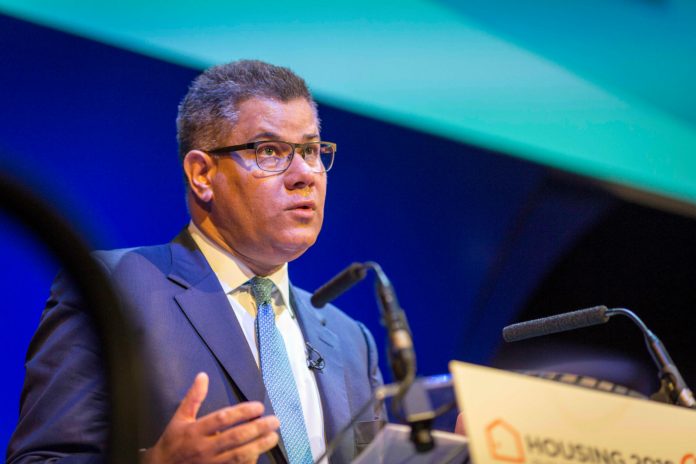In just 22 days the City of Glasgow will welcome leaders from around the world together with Government officials, civil society, business leaders and young people to launch COP26.
COP26 will be the UN’s 26th global climate summit and the UK will assume its presidency. As President of COP26 the British Government is determined to make great strides to help to protect the world against climate change.
The UK’s top goals as COP26 President are to:
Secure global net zero emissions by mid-century and keep 1.5 degrees within reach.
Countries are being asked to come forward with ambitious 2030 emissions reductions targets (NDCs) that align with reaching net zero by the middle of the century.
To deliver on these stretching targets, countries will need to accelerate the phase-out of coal, encourage investment in renewables, curtail deforestation and speed up the switch to electric vehicles.
Support countries adapt to climate change to protect communities and natural habitats.
CHANGING CLIMATE
The climate is already changing and it will continue to change, with devastating effects, even as we reduce emissions.
At COP26 we need to work together to enable and encourage countries affected by climate change to protect and restore ecosystems, build defences, put warning systems in place and make infrastructure and agriculture more resilient to avoid loss of homes, livelihoods and lives.
Mobilise finance to tackle the climate emergency.
To realise our first two goals, developed countries must deliver on their promise to raise at least US$100 billion (FJ$211 billion) in climate finance per year.
International financial institutions must play their part and we need to work towards unleashing the trillions in private and public sector finance required to secure global net zero.
In this feature we will focus on the ambition to raise at least US$100 billion (FJ$211 billion) from wealthy nations each year to support developing countries to respond to climate change.
This is a target set in Copenhagen in 2009, but so far it has not been reached. The OECD calculates that in 2019 just under US$80 (FJ$168 billion) billion was raised.
This is far short of the target and the UK Government is determined that we get to US$100 billion (FJ$211 billion) during COP26.
Developing countries need to manage the increasing impacts of climate change on their citizens’ lives and they need the funding to do it.
VULNERABLE ISLANDS
This is especially the case for Fiji and other Pacific nations who are acutely vulnerable to the impacts of climate change.
Rising sea levels and the increased frequency and intensity of tropical cyclones such as TC Yasa last year are evidence of these impacts.
The British High Commission in Suva, the Pacific Island Forum and the UNDP hosted a talanoa on Climate Finance Effectiveness.
At the talanoa Pacific Islands Forum Secretary-General Henry Puna highlighted that Pacific Island Countries need adaptation action now and with that comes the need for substantial financial flows.
“Equally important, the increased financial flows must also be matched with increased access for Pacific Island Countries who bear the brunt of these impacts, more so than most other countries in the world. The recent Intergovernmental Panel on Climate Change (IPCC) report removes any doubt that this is so,” said Secretary-General Puna.
The talanoa highlighted the need to ensure that climate finance is well spent and delivers long term, sustainable benefits for communities
The scale and speed of the changes we need to make will require all forms of finance: public finance for the development of infrastructure we need to transition to a greener and more climate-resilient economy; private finance to fund technology and innovation, and to help turn the billions of public money into trillions of total climate investment.
Developing countries in particular need support. Developed countries must deliver on their promise to raise at least US$100 billion (FJ$211 billion) every year in climate finance to support developing countries.
UK’S COMMITMENT
The UK has doubled its International Climate Finance commitment to FJ$ 33 billion (£11.6 billion) between 2021 and 2025. We will spend at least FJ$8.5 billion (£3 billion) of our international climate finance in the next 5 years on nature and nature based solutions.
We want as many countries as possible to follow our lead and increase their climate finance commitments through to 2025 and beyond.
Climate finance can make a real difference. As the largest contributor to the Green Climate Fund (18 per cent of funding) the UK is proud to be supporting the delivery of critical infrastructure including the Fiji Urban Water Supply and the Ovalau Agro-Photovoltaic Projects.
In addition to finance from Government, we must also unleash the trillions in private finance that are needed to power us towards net zero by the middle of the century.
To do this, every financial decision needs to take climate into account.
This includes all private investment decisions, but also all spending decisions that countries and international financial institutions are making as they roll out stimulus packages to rebuild economies from the COVID-19 pandemic.
Companies need to be transparent about the risks and opportunities that climate change, and the shift to a net zero economy pose to their business.
Central banks and regulators need to make sure that our financial systems can withstand the impacts of climate change and support the transition to net zero.
It also means banks, insurers, investors and other financial firms committing to ensuring their investments and lending is aligned with net zero.
Reaching the US$100 billion (FJ$211 billion) will be challenging but there are signs of hope. For instance, the USA doubled its commitment to deliver climate finance for the poorest countries at the UN General Assembly last month.
COP26 President Designate Alok Sharma recently said: “in 2009, rich countries promised they would work towards raising US$100 billion each year by 2020 to help these countries tackle climate change. Donors need to demonstrate that the target will be met and surpassed. As COP President Designate, I am determined that we will.” .
SOURCE: FIJI SUN/PACNEWS


















